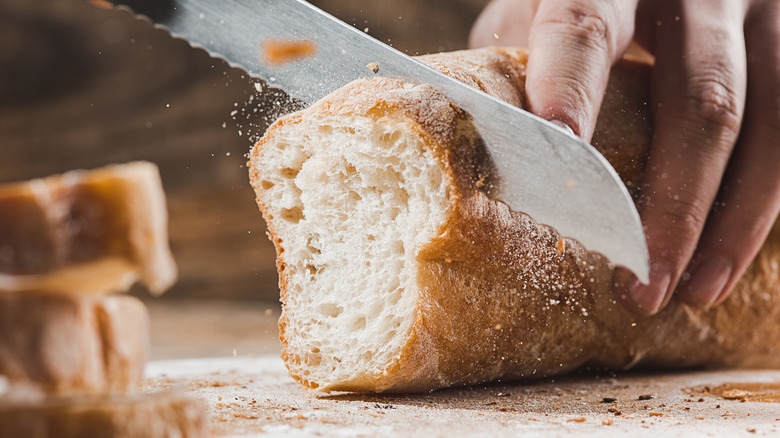The Real Reason Restaurants Are Adding New Charges To Your Bill
No matter how delicious and enjoyable a dinner with friends can be, when the server drops that slip of paper on the table, no one's exactly trying to beat the other to grab it. And how can you blame them? Eating out can mean a pretty hefty bill and restaurant prices are only expected to increase throughout 2022. The menus are getting smaller to combat rising food prices and mainstream operations (via CNN) and, according to sources such as Restaurant Dive, those shrinking menus might be here to stay. It's an unfortunate upward trend of paying more for less.
But even when you try to eat cheap on a smaller menu, you may notice some odd charges on your bill. For example, you might see a surcharge on items that you were never charged for before, like dinner rolls or water. This might come as a shock as generally, these items were complimentary in the past. The changes may leave you wondering — what exactly is going on here?
New surcharges help keep the restaurant running
Although it does sting to realize that you're paying for bread and water that used to be free, one must understand the position the restauranter. Let's not forget the pandemic put many restaurants out of business.
A smaller menu with higher prices certainly isn't going to attract new customers, and with food costs rising 7.9% by the end of this past February, new ways to make money and keep the ovens burning have to be found.
As chef David Burke explains to Nation's Restaurant News, these upcharges to bread and water, along with credit card processing fees, were ways to adapt during the pandemic. Burke states that charging for what was once complimentary bread is a beneficial change as many people don't want the bread to begin with. Additionally, the chef suggests that skipping out on certain "plate presentations," such as microgreens and fancy garnishes, helps eliminate extra costs and waste.
It's not just the charging of what was once included in your dining experience or skipping over presentations that have changed in the restaurant scene. FSR Magazine predicts that other traditional practices of the hospitality industry will change to adapt to the post-pandemic world. This includes a shift to digital payment, a renewed focus on the delivery model, and redesigning the dining room to be more "contactless" and suitable for larger crowds.

